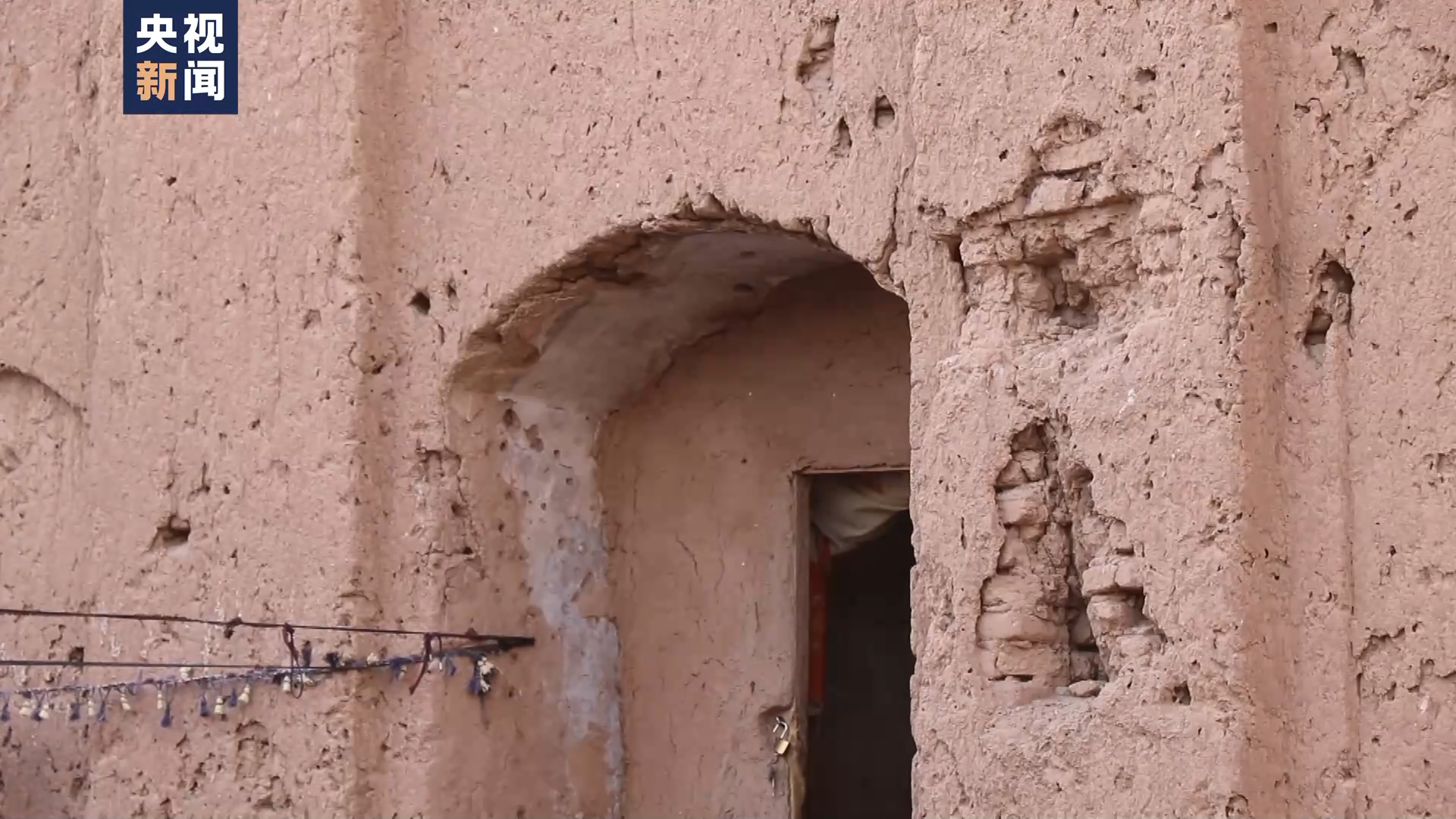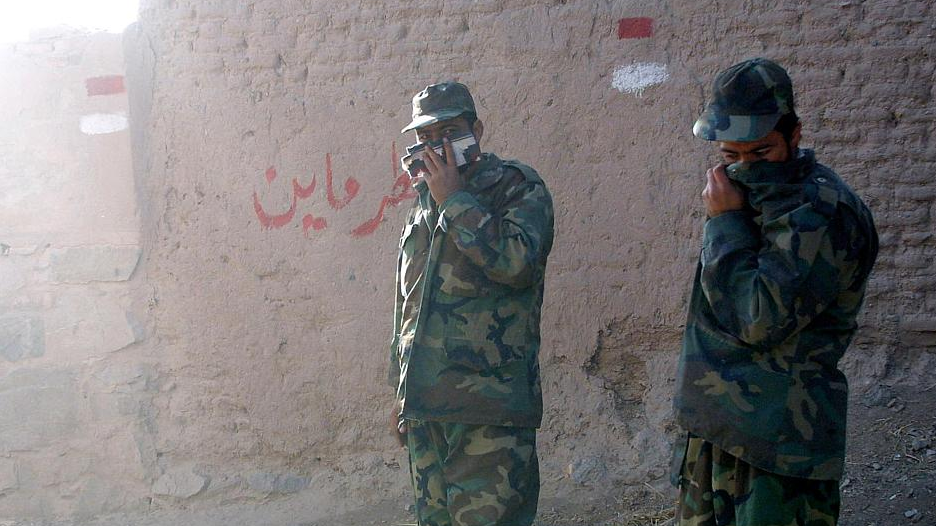
A view of a house destroyed by U.S. cluster bombs in Herat City, Afghanistan. /China Media Group
A view of a house destroyed by U.S. cluster bombs in Herat City, Afghanistan. /China Media Group
Afghans still suffer from the disaster and pain brought by the invasion and occupation of U.S. troops, who left Afghanistan completely on August 30, 2021.
The 20-year-long Afghanistan war had taken the lives of more than 46,000 civilians and made at least 5.9 million Afghans flee the country or internally displaced, according to the Costs of War project of Brown University.
Bibi Jan, an Afghan woman who lives in the Qala-e-Shatir village of Heart City, cannot forget the horrific day in 2001 when the U.S. forces brutally dropped cluster bombs on the poor village, leaving scores dead or injured.
"It haunts me even at night whenever I remember. I was alive although my head was bleeding," said Jan.
According to data from the Cluster Munition Coalition, the U.S. forces dropped 1,228 cluster bombs containing 248,056 bomblets in Afghanistan from 2001 to 2002.
The cluster bombs are a type of explosive weapon scattering tiny bomblets over an area the size of several football pitches. But not all of them detonate on impact. The unexploded bombs, known as duds, can remain embedded in the ground for years, posing a severe danger to civilians, most notably children.
Recalling the terrifying day, Jan said the bombs were dropped, three blasted with big bangs and two others did not, and seconds later she saw everything was out of order as the windows of her house were smashed and children around were lying in a pool of blood.
"The children were at home. One's hand was broken, one's leg was wounded, one's head was hurt and another's kidney was injured. Nine people were injured," Jan said.

Afghan members of a local organization for mine clearance cover their faces as they detonate U.S. cluster bombs in Herat City, Afghanistan, November 22, 2001. /CFP
Afghan members of a local organization for mine clearance cover their faces as they detonate U.S. cluster bombs in Herat City, Afghanistan, November 22, 2001. /CFP
Another victim of the bombing is Nasir Ahmad who survived the brutal attack and clearly remembers the tragic day as a bitter memory in his life.
"I was 30 years old then and was at home. My mother was baking naan (Afghan traditional flat bread) and my wife was washing bowls, but suddenly the U.S. planes dropped bombs, martyring my wife and injuring eight others," Ahmad said.
Recalling the bloody and tragic day, Ahmad said "no one has come to give an apology or compensate the victims."
Echoing Ahmad, a man in the city also complained the U.S. attacked his village for no reason and it has not compensated the families of the dead, let alone offered an apology.
In an interview with China Media Group, the dejected man, who lost eight close relatives during a cluster bomb attack, said, "The United States has not given 10 Afghanis ($0.12), has not compensated the victims' families, has not helped their family members and also has not apologized."
Remembering the UN had sent out several explosive ordnance disposal teams to clear the remaining ammunition in the explosion sites, the man said, "The place had been destroyed and we could not rebuild it."
(With input from Xinhua)